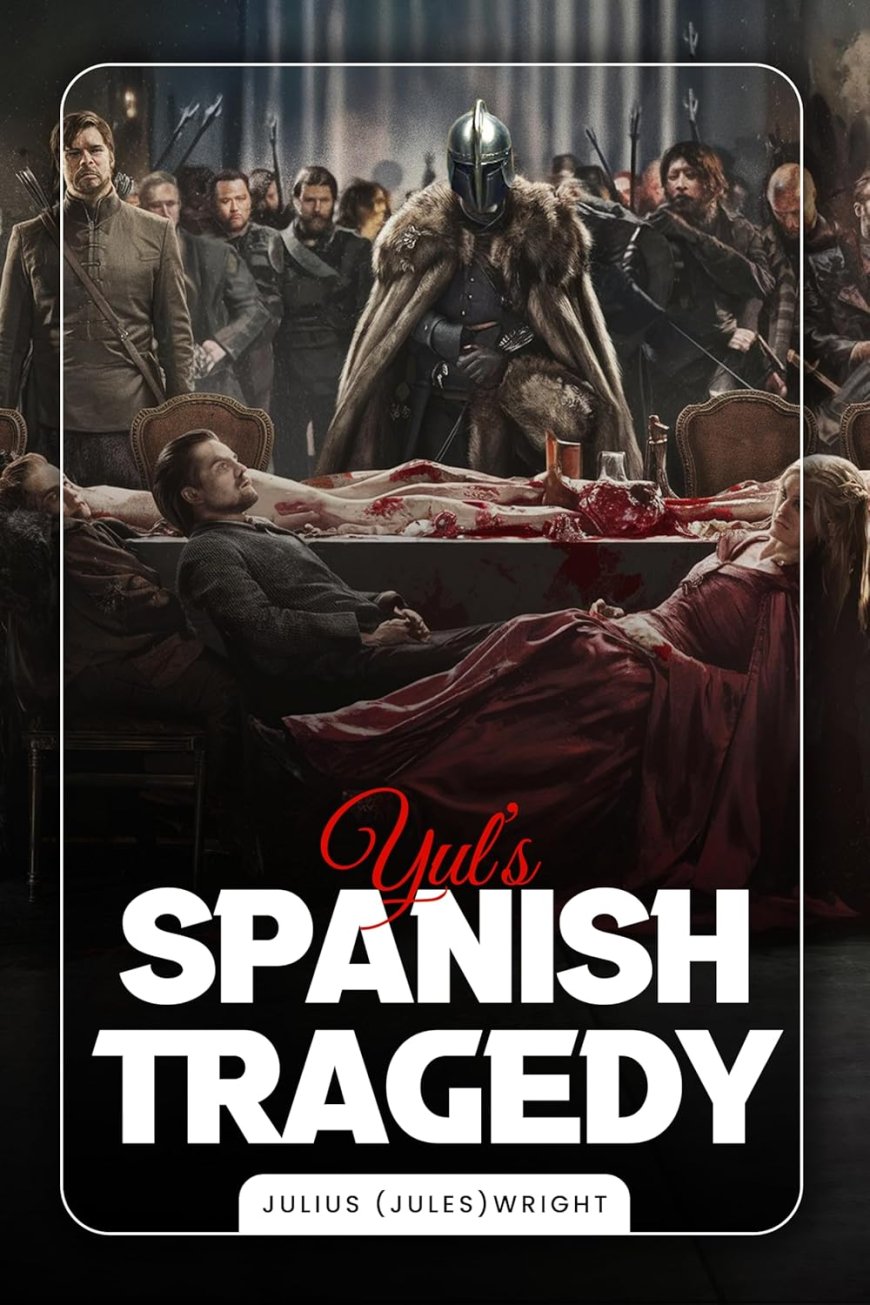5 Lessons in Leadership from Yul’s Spanish Tragedy
Yul, a once-seething youth obsessed with revenge over personal loss, now faces navigating the muddy landscape of politics, betrayal, and leadership in a dying Roman Empire.

In Yul's Spanish Tragedy, we witness an up-and-coming warrior facing the cold truths of command. Yul, a once-seething youth obsessed with revenge over personal loss, now faces navigating the muddy landscape of politics, betrayal, and leadership in a dying Roman Empire.
It is not merely a tale of battle and blood, it is a story of choices, accountability, and what it means to command amidst crisis.
Through his experiences, Yul teaches us five powerful lessons in leadership that feel as relevant today as they did in the 5th century.
1. Lead with Integrity, Even When It Costs You
One of the most defining moments in Yul’s Spanish Tragedy is when Yul chooses to stand by his principles, even when doing so puts him at odds with those in power.
When his subordinate Gracchus is arrested on dubious charges, Yul publicly defends him, even though he knows it may hurt his reputation or even cost him his job. He does not retreat, not through obstinacy but because he is committed to fairness and loyalty.
This proves that true leadership isn't about popularity or playing it safe; it's about making a stand for what's right, even when it's difficult. Yul recognizes that if he plays politics and sacrifices his values, he'll lose his men's respect and integrity.
2. Know When to Hold Your Tongue and When to Speak Up
Yul soon discovers that leadership isn't always about issuing orders. Sometimes, it's about knowing when to remain silent.
There are times in the book when Yul is inclined to lash out, particularly against arrogant characters like Constans, the emperor's son. But rather than allowing anger to override him, Yul exercises restraint. He realizes that one misplaced word can make an enemy for life out of a rival.
At the same time, when his leader, Ridhast, requires assistance, Yul comes to the fore without any hesitation. He speaks out at the crucial moment, demonstrating that leadership entails silence and courage.
Occasionally, wisdom lies in knowing when to be at which moment.
3. Trust Your People and Let Them Trust You
A good leader does not attempt to do everything himself. Yul is surrounded by people he trusts, such as Bella, his wife; Hansi, his second-in-command; and Ridhast, his mentor, and listens to their counsel.
He assigns tasks, gives others authority, and forms close relationships founded on respect. This earns him loyalty, not only from his soldiers but also from the people around him who realize that he respects their opinions.
In one of the scenes, Yul says to his father:
"Sir, this is a matter of military discipline. I need to stay disciplined."
It's a plain line, but it demonstrates maturity. He's no longer reacting on impulse—considering the larger picture and having faith in his training and unit.
4. Adapt to Changing Situations
Leadership in Yul's Spanish Tragedy is never predictable. One day, Yul is gearing up for war, and the next, he's navigating court politics or wrangling drunk soldiers after a celebration.
What makes Yul so effective is his capacity to adjust. Whether transforming a dirty longhouse into an ad hoc headquarters or defusing tensions between warring factions, he doesn't freak out—he adapts.
True leaders understand that flexibility is the way. Plans unravel. People slip up. Good leaders are the ones who know how to take a punch and adapt under fire.
5. Remain Grounded with Love and Family
Amidst all the turmoil, Yul has something many leaders don't possess: a sturdy personal anchor.
His connection to Bella keeps him earthed. She pushes, encourages, and reminds him why he's fighting, not for power or fame, but for the people he cares about.
Even when he's in the midst of political intrigue or on trial, Yul never forgets what's most important. That emotional centering keeps him focused, relaxed, and centered, something every leader must have.
As Yul points out in one late-night conversation:
"I am too wired now," but promptly fell asleep, contradicting my confident statement.
Such moments remind us that even warriors must rest, love, and laugh. Authentic leadership comes with being human.
Final Thoughts
Yul's Spanish Tragedy is not merely historical fiction, and it's a leadership lesson in the cloak of war, betrayal, and survival.
From holding firm to your principles to understanding when to talk and when to remain quiet, Yul's odyssey provides age-old lessons about leading in challenging times.
Something must be taken away from Yul's tale, whether on a battlefield charge, as part of a small squad, or simply an effort to become a better individual.
Next time you face a difficult choice, ask yourself: What would Yul do?
Ultimately, authentic leadership is not about rank or title; it's about character, courage, and caring for the people who work for you.











































































